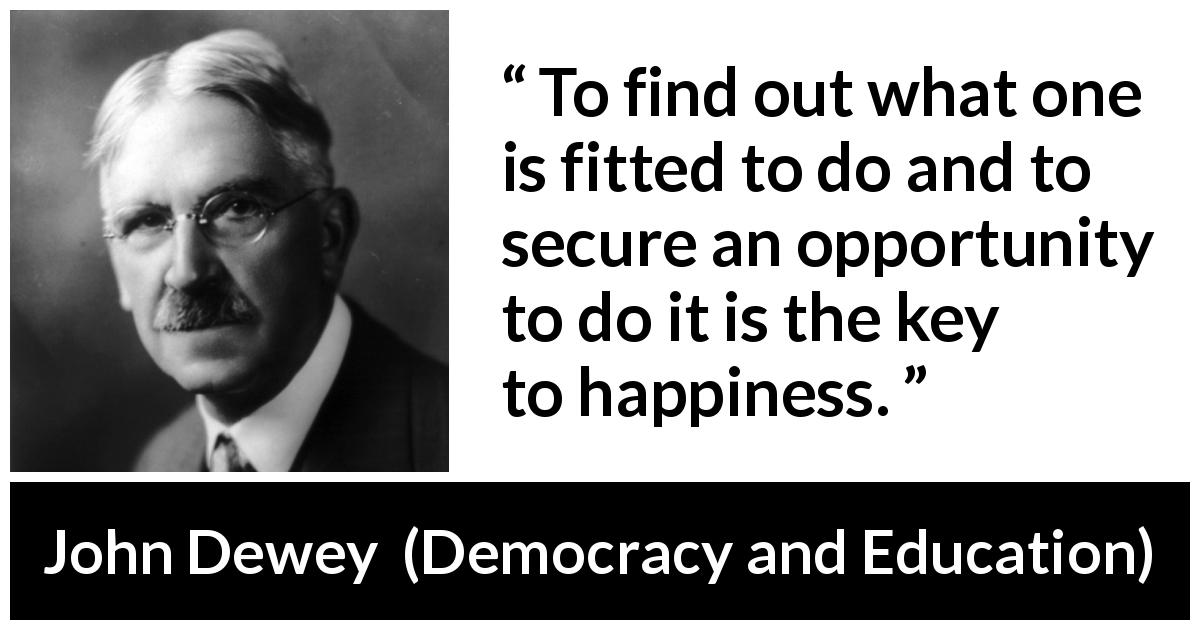

More than anything, the quality ofįace-to-face interaction was essential to the experience of education. Its deepest and richest sense a community mustĪlways remain a matter of face-to face intercourse" 93).Ĭommunity for Dewey emphasized "face-to-face"Īssociation. That "associated life is not a matter of physical juxtaposition, but of genuine intercourse - of community of experience in a non-metaphorical sense ofĬommunity" (quoted in West, 1989, p. Interaction and the tendency to trivialize the meaning of community by expanding it to encompassĪny kind of associated activity, Dewey recognized "All communication," he added, "is educative"Įxperience in community life was education forĭemocracy, yet that experience required a certainĬharacter. Things they have in common and communication is the way in which they come to possess Words common, community, and communication. There is more than a verbal tie between the Democracy, forĭewey, was "primarily a form of associated living,Ī conjoint communicated experience" (1916, p.ĩ3). Precisely what constitute a democratically constituted society" (1916, pp. 89).īoth, he claimed, "point to democracy" and "are With other forms of association?" (1927, p. Shared?" and B) "How full and free is the interplay "How numerous and varied are the interests The "standard" for "desirable traits ofįorms of community life," wrote Dewey, was A) It is the idea of community life itself"Īssociated activity would have to be inclusiveĪnd diverse. For Dewey, "democracy is not an alternative to other principles of associated life. 23) was the basis of a participatory democratic culture.

In which individuals engage in pervasive associated activity, but that "conjoint, combined, associated action" (1927, p. The kind of society he envisioned was not only one The kind of society we have in mind"(1916, p.103). As Dewey himself recognized, "theĬonception of education as a social process andįunction has no definite meaning until we define Thing to assert that schools should be not in but ofĪ community, and another to find purpose in community life. Has implications for the character and purpose ofĮducation: education involves socially interconnected action for a particular social end. Living, is the finest product of schooling" (1916, p.ĭewey's belief that education is not a preparation for life but a process of living comes directlyįrom this denial of fragmenting dualisms. Itself," claimed Dewey, "and to make the conditions of life such that all will learn in the process of


 0 kommentar(er)
0 kommentar(er)
